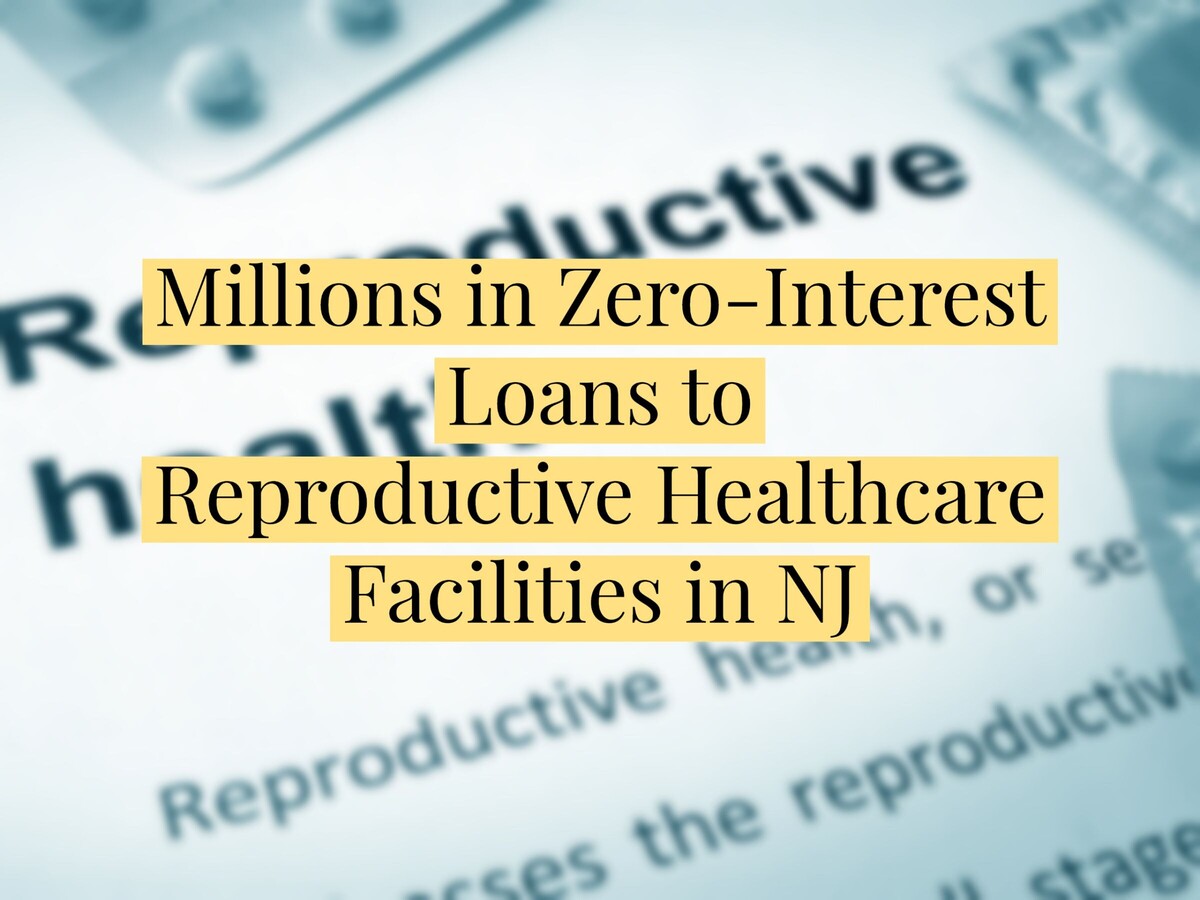Image


Following the U.S. Supreme Court’s Dobbs v. Jackson Women’s Health Organization decision overturning Roe v. Wade and other states implementing restrictions on and even criminalizing reproductive health care, the New Jersey Department of Health (NJDOH), in partnership with the New Jersey Health Care Facilities Financing Authority (HCFFA), is offering zero-percent interest, forgivable loans to family planning providers seeking to make facility upgrades for security or to deliver care to more patients.
“We must and will continue to take a comprehensive approach to making reproductive health care safe and accessible to all who need it in our state,” said Governor Murphy. “This is a matter of defending a fundamental right that remains under attack throughout our country. New Jersey will continue to serve as a safe haven for both providers and patients as we take additional steps to ensure protected, equitable access to this critical care.”
A total of $6,076,438 was approved by the HCFFA's board for 15 applicants in the first round of this loan program.
HCFFA has begun executing loan agreements with the following recipients:
“These facilities provide much needed services and have already reported a substantial increase in demand over the last six months,” said New Jersey Health Care Facilities Financing Authority Executive Director Mark E. Hopkins.
The second round of DOH and HCFFA’s loan program will remain open to applicants until 4 p.m. on January 6, 2023, with approximately $3.8 million available for awards.
Interested facilities can submit their application to HCFFA via email at FPLoan@njhcffa.com. The maximum award for applicants will be $750,000.
To be eligible, facilities must be in good standing and provide a full spectrum of reproductive health services, including but not limited to:
The program will run through June 30, 2023, and facilities will have 180 days after the close of the program period to submit final expenditure reports and perform any necessary and related close-out activities.
In addition, to help prevent potential attacks on abortion providers and patients, the New Jersey Office of Homeland Security and Preparedness (NJOHSP) has opened the application period for the State’s new $5 million Reproductive Health Security Grant Program, which will award up to $100,000 in funding to eligible New Jersey-licensed reproductive healthcare facilities that can demonstrate a high-security risk.
This initiative, which requires applicants to complete a site vulnerability assessment or utilize a facility self-assessment tool prior to submission, is primarily geared toward those reproductive healthcare facilities that may be targeted by violence, property damage, vandalism, harassment, or similar illegal activities.
“This grant program will help to safeguard patients and their medical providers. Our Grants Management Bureau will assess threats, vulnerabilities, and consequences to determine which providers demonstrate the greatest and lowest risk for an attack,” said NJOHSP Director Laurie Doran. “In addition to acquiring the necessary security-hardening grant funding, this process also presents healthcare providers with the opportunity to forge relationships with the men and women who strive to serve and protect them. Past experience has taught us that cultivating these relationships prior to a potential incident is critical to law enforcement response.”
Like the facility grants, eligible applicants include facilities in good standing that provide a full spectrum of reproductive health care services. Largely modeled after the State’s existing nonprofit security grant program, the 2023 Reproductive Health Security Grant Program’s available funding may be used for:
Applications for the Office of Homeland Security’s Reproductive Health Security Grant Program will be accepted through February 28. Interested healthcare providers can view program details or submit an application electronically at NJOHSP.gov. Recipients will have a 24-month period to expend funding.
This funding builds upon other recent efforts to protect and ensure access to reproductive health care in New Jersey. In December 2022:
Improve mental health accessibility in our town! Donate to Morristown, NJs local mental health accessibility fund today!
 Scan the QR code to donate!
Scan the QR code to donate!*The 2022 Local News Fund is a program administered by the Local Media Foundation, a 501(c)(3) organization affiliated with the Local Media Association. The program’s purpose is to allow independent and family-owned news organizations to solicit tax-deductible donations from their communities for journalism projects focusing on critical local issues. Contributions to this program are tax-deductible to the full extent of U.S. law; please consult a tax advisor for details.